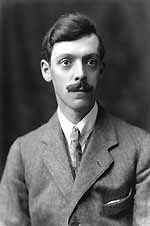 W
WJohn Anderson was a Scottish philosopher who occupied the post of Challis Professor of Philosophy at Sydney University from 1927 to 1958. He founded the empirical brand of philosophy known as Australian realism.
 W
WGloria Evangelina Anzaldúa was an American scholar of Chicana cultural theory, feminist theory, and queer theory. She loosely based her best-known book, Borderlands/La Frontera: The New Mestiza, on her life growing up on the Mexico–Texas border and incorporated her lifelong experiences of social and cultural marginalization into her work. She also developed theories about the marginal, in-between, and mixed cultures that develop along borders, including on the concepts of Nepantla, Coyoxaulqui imperative, new tribalism, and spiritual activism.
 W
WAristotle was a Greek philosopher and polymath during the Classical period in Ancient Greece. Taught by Plato, he was the founder of the Lyceum, the Peripatetic school of philosophy, and the Aristotelian tradition. His writings cover many subjects including physics, biology, zoology, metaphysics, logic, ethics, aesthetics, poetry, theatre, music, rhetoric, psychology, linguistics, economics, politics, and government. Aristotle provided a complex synthesis of the various philosophies existing prior to him. It was above all from his teachings that the West inherited its intellectual lexicon, as well as problems and methods of inquiry. As a result, his philosophy has exerted a unique influence on almost every form of knowledge in the West and it continues to be a subject of contemporary philosophical discussion.
 W
WRoland Gérard Barthes was a French literary theorist, essayist, philosopher, critic, and semiotician. Barthes's ideas explored a diverse range of fields and he influenced the development of many schools of theory, including structuralism, semiotics, social theory, design theory, anthropology, and post-structuralism. He was particularly known for developing and extending the field of semiotics through the analysis of a variety of sign systems, mainly derived from Western popular culture.
 W
WGeorges Albert Maurice Victor Bataille was a French philosopher and intellectual working in philosophy, literature, sociology, anthropology, consumerism, and history of art. His writing, which included essays, novels, and poetry, explored such subjects as erotism, mysticism, surrealism, and transgression. His work would prove influential on subsequent schools of philosophy and social theory, including poststructuralism.
 W
WSimone Lucie Ernestine Marie Bertrand de Beauvoir was a French writer, intellectual, existentialist philosopher, political activist, feminist and social theorist. Though she did not consider herself a philosopher, she had a significant influence on both feminist existentialism and feminist theory.
 W
WJudith Pamela Butler is an American philosopher and gender theorist whose work has influenced political philosophy, ethics, and the fields of third-wave feminist, queer, and literary theory. In 1993, they began teaching at the University of California, Berkeley, where they have served, beginning in 1998, as the Maxine Elliot Professor in the Department of Comparative Literature and the Program of Critical Theory. They are also the Hannah Arendt Chair at the European Graduate School.
 W
WHélène Cixous is a professor, French feminist writer, poet, playwright, philosopher, literary critic and rhetorician. Cixous is best known for her article "The Laugh of the Medusa", which established her as one of the early thinkers in post-structural feminism. She founded the first centre of feminist studies at a European university at the Centre universitaire de Vincennes of the University of Paris.
 W
WGilles Deleuze was a French philosopher who, from the early 1950s until his death in 1995, wrote on philosophy, literature, film, and fine art. His most popular works were the two volumes of Capitalism and Schizophrenia: Anti-Oedipus (1972) and A Thousand Plateaus (1980), both co-written with psychoanalyst Félix Guattari. His metaphysical treatise Difference and Repetition (1968) is considered by many scholars to be his magnum opus. An important part of Deleuze's oeuvre is devoted to the reading of other philosophers: the Stoics, Leibniz, Hume, Kant, Nietzsche, and Bergson, with particular influence derived from Spinoza. A. W. Moore, citing Bernard Williams's criteria for a great thinker, ranks Deleuze among the "greatest philosophers". Although he once characterized himself as a "pure metaphysician", his work has influenced a variety of disciplines across the humanities, including philosophy, art, and literary theory, as well as movements such as post-structuralism and postmodernism.
 W
WPhilip Kindred Dick was an American writer known for his work in science fiction. He wrote 44 published novels and approximately 121 short stories, most of which appeared in science fiction magazines during his lifetime. His fiction explored varied philosophical and social themes, and featured recurrent elements such as alternate realities, simulacra, monopolistic corporations, drug abuse, authoritarian governments, and altered states of consciousness. His work was concerned with questions surrounding the nature of reality, perception, human nature, and identity.
 W
WDenis Diderot was a French philosopher, art critic, and writer, best known for serving as co-founder, chief editor, and contributor to the Encyclopédie along with Jean le Rond d'Alembert. He was a prominent figure during the Age of Enlightenment.
 W
WBracha Lichtenberg Ettinger is an Israeli-born French artist, visual analyst, psychoanalyst, philosopher, and writer.
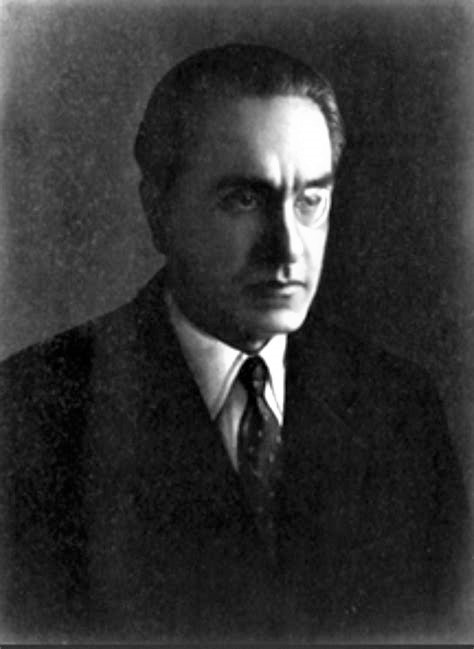 W
WGiulio Cesare Andrea Evola, better known as Julius Evola, was an Italian philosopher, poet, painter, antisemitic conspiracy theorist, esotericist, and occultist. He has been described as a "fascist intellectual", a "radical traditionalist", "antiegalitarian, antiliberal, antidemocratic, and antipopular", and as having been "the leading philosopher of Europe's neofascist movement".
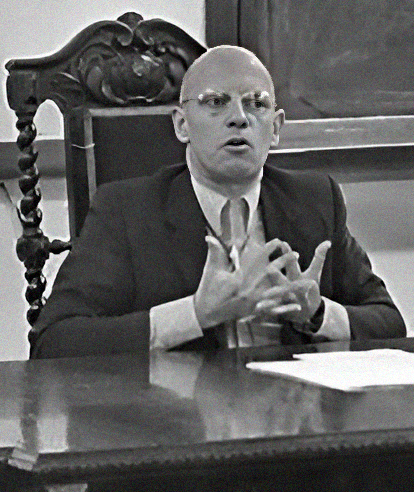 W
WPaul-Michel Foucault was a French philosopher, historian of ideas, writer, political activist, and literary critic.
 W
WFrançois Marie Charles Fourier was a French philosopher, an influential early socialist thinker and one of the founders of utopian socialism. Some of Fourier's social and moral views, held to be radical in his lifetime, have become mainstream thinking in modern society. For instance, Fourier is credited with having originated the word feminism in 1837.
 W
WAnthony Clifford Grayling is a British philosopher and author. He was born in Northern Rhodesia and spent most of his childhood there and in Nyasaland. In 2011 he founded and became the first Master of New College of the Humanities, an independent undergraduate college in London. Until June 2011, he was Professor of Philosophy at Birkbeck, University of London, where he taught from 1991. He is also a supernumerary fellow of St Anne's College, Oxford where he formerly taught.
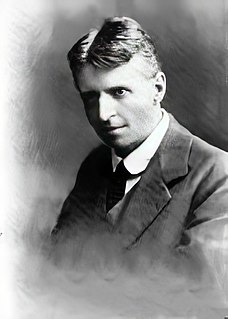 W
WOtto Hans Adolf Gross was an Austrian psychoanalyst. A maverick early disciple of Sigmund Freud, he later became an anarchist and joined the utopian Ascona community.
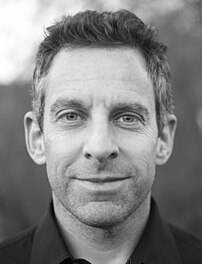 W
WSamuel Benjamin Harris is an American author, philosopher, neuroscientist, and podcast host. His work touches on a wide range of topics, including rationality, religion, ethics, free will, neuroscience, meditation, psychedelics, philosophy of mind, politics, terrorism, and artificial intelligence. Harris came to prominence for his criticism of religion, and Islam in particular, and is described as one of the "Four Horsemen of Atheism", along with Richard Dawkins, Christopher Hitchens, and Daniel Dennett.
 W
WGloria Jean Watkins, better known by her pen name bell hooks, is an American author, professor, feminist, and social activist. The name "bell hooks" is borrowed from her maternal great-grandmother, Bell Blair Hooks.
 W
WImmanuel Kant was a German philosopher and one of the central Enlightenment thinkers. Kant's comprehensive and systematic works in epistemology, metaphysics, ethics, and aesthetics have made him one of the most influential figures in modern Western philosophy.
 W
WFriedrich Konrad Eduard Wilhelm Ludwig Klages was a German philosopher, psychologist, poet, writer, and lecturer, who was a two-time nominee for the Nobel Prize in Literature. In the Germanic world, he is considered one of the most important thinkers of the 20th century. He began his career as a research chemist according to his family's wishes, though soon returned to his passions for poetry, philosophy and classical studies. He held a post at the University of Munich, where in 1905 he founded the Psychodiagnostisches Seminar; the latter was forced to close in 1914 with the outbreak of World War I. In 1915, Klages moved to neutral Switzerland, where over the following decades much of his mature philosophical works were written. Klages died in 1956.
 W
WSarah Kofman was a French philosopher.
 W
WJulia Kristeva is a Bulgarian-French philosopher, literary critic, semiotician, psychoanalyst, feminist, and, most recently, novelist, who has lived in France since the mid-1960s. She is now a professor emeritus at the University Paris Diderot. The author of more than 30 books, including Powers of Horror, Tales of Love, Black Sun: Depression and Melancholia, Proust and the Sense of Time, and the trilogy Female Genius, she has been awarded Commander of the Legion of Honor, Commander of the Order of Merit, the Holberg International Memorial Prize, the Hannah Arendt Prize, and the Vision 97 Foundation Prize, awarded by the Havel Foundation.
 W
WJacques Marie Émile Lacan was a French psychoanalyst and psychiatrist who has been called "the most controversial psycho-analyst since Freud". Giving yearly seminars in Paris from 1953 to 1981, Lacan’s work has marked the French and international intellectual landscape, having made a significant impact on continental philosophy and cultural theory in areas such as post-structuralism, critical theory, feminist theory and film theory as well as on psychoanalysis itself.
 W
WBaroness Suzanne Lilar was a Flemish Belgian essayist, novelist, and playwright writing in French. She was the wife of the Belgian Minister of Justice Albert Lilar and mother of the writer Françoise Mallet-Joris and the art historian Marie Fredericq-Lilar.
 W
WGilles Lipovetsky is a French philosopher, writer and sociologist, professor at the University of Grenoble.
 W
WJohn Stuart Mill, usually cited as J. S. Mill, was an English philosopher, political economist, and civil servant. One of the most influential thinkers in the history of classical liberalism, he contributed widely to social theory, political theory, and political economy. Dubbed "the most influential English-speaking philosopher of the nineteenth century", he conceived of liberty as justifying the freedom of the individual in opposition to unlimited state and social control.
 W
WFriedrich Wilhelm Nietzsche was a German philosopher, cultural critic, composer, poet, and philologist whose work has exerted a profound influence on modern intellectual history. He began his career as a classical philologist before turning to philosophy. He became the youngest person ever to hold the Chair of Classical Philology at the University of Basel in 1869 at the age of 24. Nietzsche resigned in 1879 due to health problems that plagued him most of his life; he completed much of his core writing in the following decade. In 1889, at age 44, he suffered a collapse and afterward a complete loss of his mental faculties. He lived his remaining years in the care of his mother until her death in 1897 and then with his sister Elisabeth Förster-Nietzsche. Nietzsche died in 1900.
 W
WMartha Craven Nussbaum is an American philosopher and the current Ernst Freund Distinguished Service Professor of Law and Ethics at the University of Chicago, where she is jointly appointed in the law school and the philosophy department. She has a particular interest in ancient Greek and Roman philosophy, political philosophy, existentialism, feminism, and ethics, including animal rights. She also holds associate appointments in classics, divinity, and political science, is a member of the Committee on Southern Asian Studies, and a board member of the Human Rights Program. She previously taught at Harvard and Brown.
 W
WMichel Onfray is a French writer and philosopher. Having a hedonistic, epicurean and atheist world view, he is a highly prolific author on philosophy, having written more than 100 books. His philosophy is mainly influenced by such thinkers as Nietzsche, Epicurus, the Cynic and Cyrenaic schools, as well as French materialism.
 W
WGriselda Frances Sinclair Pollock is an art historian and cultural analyst of international, postcolonial feminist studies in the visual arts and visual culture. Based in the United Kingdom, she is known for her theoretical and methodological innovation, combined with readings of historical and contemporary art, film and cultural theory. Since 1977, Pollock has been one of the most influential scholars of modern, avant-garde art, postmodern art, and contemporary art. She is a major influence in feminist theory, feminist art history and gender studies.
 W
WPaul B. Preciado, is a writer, philosopher and curator whose work focuses on applied and theoretical topics relating to identity, gender, pornography, architecture and sexuality. In 2010, Preciado began a process of "slow transition" where he started the process of becoming a male, physically. From this point on he has considered himself transgender as well as a feminist.
 W
WWilhelm Reich was an Austrian doctor of medicine and psychoanalyst, a member of the second generation of analysts after Sigmund Freud. The author of several influential books, most notably Character Analysis (1933), The Mass Psychology of Fascism (1933), and The Sexual Revolution (1936), Reich became known as one of the most radical figures in the history of psychiatry.
 W
WRobert Reid-Pharr is an American literary and cultural critic and professor.
 W
WBertrand Arthur William Russell, 3rd Earl Russell was a British polymath, philosopher, logician, mathematician, historian, writer, social critic, political activist, and Nobel laureate. Throughout his life, Russell considered himself a liberal, a socialist and a pacifist, although he also sometimes suggested that his sceptical nature had led him to feel that he had "never been any of these things, in any profound sense". Russell was born in Monmouthshire into one of the most prominent aristocratic families in the United Kingdom.
 W
WDonatien Alphonse François, Marquis de Sade, was a French nobleman, revolutionary politician, philosopher, and writer, famous for his libertine sexuality. His works include novels, short stories, plays, dialogues, and political tracts. In his lifetime some of these were published under his own name while others, which de Sade denied having written, appeared anonymously. De Sade is best known for his erotic works, which combined philosophical discourse with pornography, depicting sexual fantasies with an emphasis on violence, suffering, anal sex, crime, and blasphemy against Christianity. He became infamous for his numerous sexual crimes and abuse against young men, women, and children. He claimed to be a proponent of absolute freedom, unrestrained by morality, religion, or law. The words sadism and sadist are derived from his name.
 W
WJorge Agustín Nicolás Ruiz de Santayana y Borrás, known in English as George Santayana, was a philosopher, essayist, poet, and novelist. Originally from Spain, Santayana was raised and educated in the US from the age of eight and identified himself as an American, although he always retained a valid Spanish passport. At the age of 48, Santayana left his position at Harvard and returned to Europe permanently.
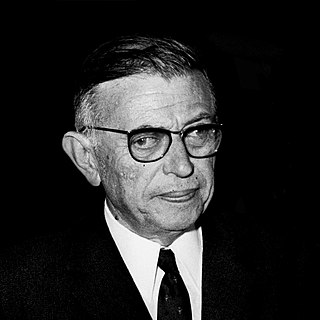 W
WJean-Paul Charles Aymard Sartre was a French philosopher, playwright, novelist, screenwriter, political activist, biographer, and literary critic. He was one of the key figures in the philosophy of existentialism and phenomenology, and one of the leading figures in 20th-century French philosophy and Marxism. His work has also influenced sociology, critical theory, post-colonial theory, and literary studies, and continues to influence these disciplines.
 W
WSir Roger Vernon Scruton was an English philosopher and writer who specialised in aesthetics and political philosophy, particularly in the furtherance of traditionalist conservative views.
 W
WEve Kosofsky Sedgwick was an American academic scholar in the fields of gender studies, queer theory, and critical theory. Sedgwick published several books considered "groundbreaking" in the field of queer theory, including Between Men: English Literature and Male Homosocial Desire (1985), Epistemology of the Closet (1990), and Tendencies (1993). Her critical writings helped create the field of queer studies. Her works reflect an interest in a range of issues, including queer performativity; experimental critical writing; the works of Marcel Proust; non-Lacanian psychoanalysis; artists' books; Buddhism and pedagogy; the affective theories of Silvan Tomkins and Melanie Klein; and material culture, especially textiles and texture.
 W
WPeter Albert David Singer is an Australian moral philosopher. He is the Ira W. DeCamp Professor of Bioethics at Princeton University, and a Laureate Professor at the Centre for Applied Philosophy and Public Ethics at the University of Melbourne. He specialises in applied ethics and approaches ethical issues from a secular, utilitarian perspective. He is known in particular for his book Animal Liberation (1975), in which he argues in favour of veganism, and his essay "Famine, Affluence, and Morality", in which he argues in favour of donating to help the global poor. For most of his career, he was a preference utilitarian, but he stated in The Point of View of the Universe (2014), coauthored with Katarzyna de Lazari-Radek, that he had become a hedonistic utilitarian.
 W
WAlan Gerald Soble is an American philosopher and author of several books on the philosophy of sex. He taught at the University of New Orleans from 1986 to 2006. He is currently Adjunct Professor of philosophy at Drexel University in Philadelphia.
 W
WRobert C. Solomon was an American professor of philosophy at the University of Texas at Austin, where he taught for more than 30 years. Professor Solomon won many teaching honors, including the Standard Oil Outstanding Teaching Award in 1973; the University of Texas President's Associates Teaching Award (twice); a Fulbright Lecture Award; University Research and National Endowment for the Humanities Grants; and the Chad Oliver Plan II Teaching Award in 1998.
 W
WJun Tsuji, later Ryūkitsu Mizushima , was a Japanese author: a poet, essayist, playwright, and translator. He has also been described as a Dadaist, nihilist, Epicurean, shakuhachi musician, actor, feminist, and bohemian. He translated Max Stirner's The Ego and Its Own and Cesare Lombroso's The Man of Genius into Japanese.
 W
WFrançois-Marie Arouet, known by his nom de plume Voltaire, was a French Enlightenment writer, historian, and philosopher famous for his wit, his criticism of Christianity—especially the Roman Catholic Church—as well as his advocacy of freedom of speech, freedom of religion, and separation of church and state.
 W
WKenneth Earl Wilber II is an American philosopher and writer on transpersonal psychology and his own integral theory, a systematic philosophy which suggests the synthesis of all human knowledge and experience.
 W
WMonique Wittig was a French author, philosopher and feminist theorist who wrote about overcoming socially enforced gender roles and who coined the phrase "heterosexual contract". She published her first novel, L'Opoponax, in 1964. Her second novel, Les Guérillères (1969), was a landmark in lesbian feminism.